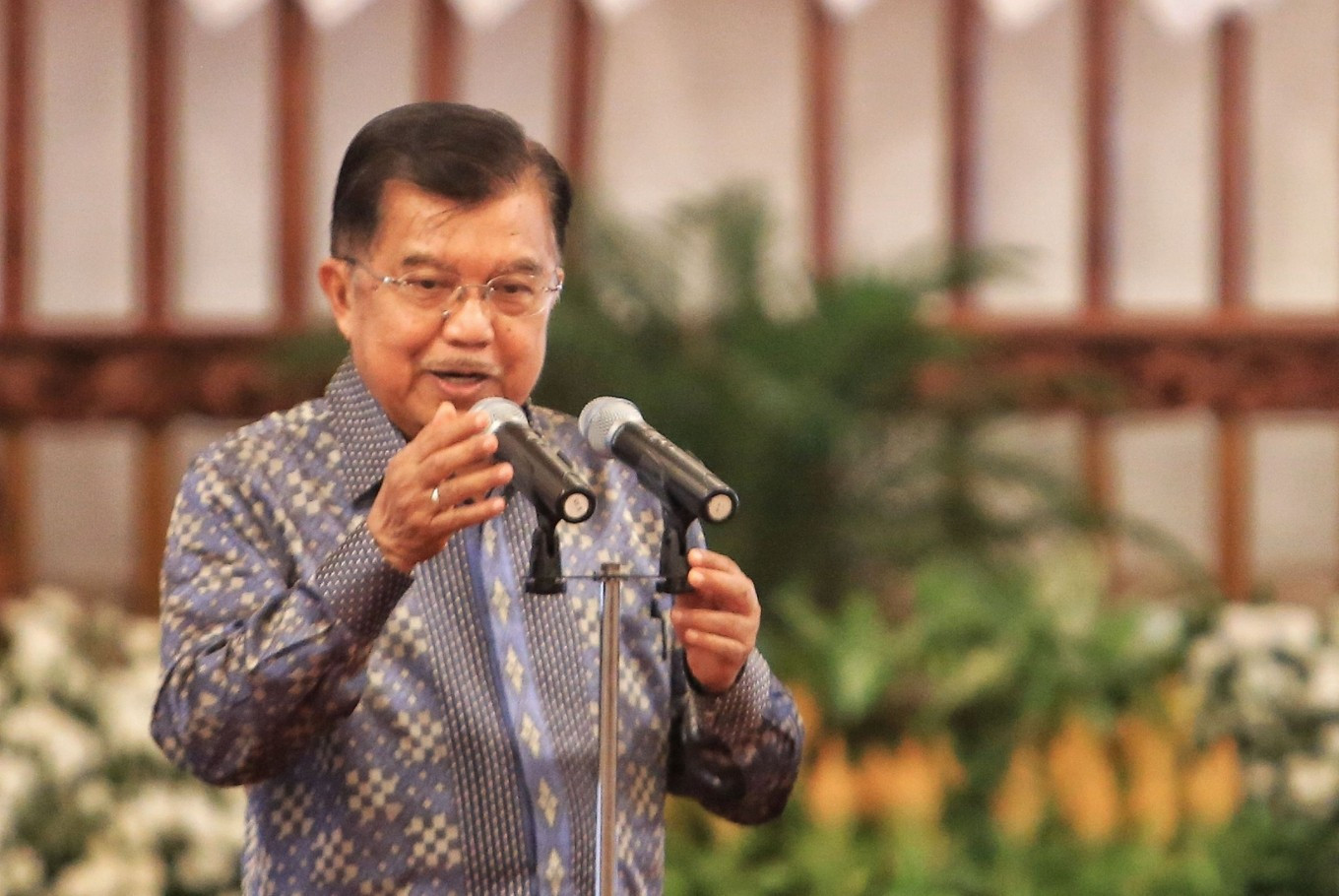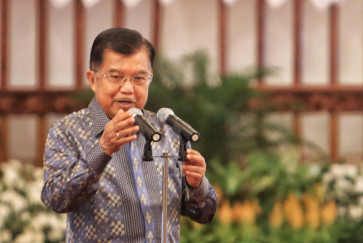Popular Reads
Top Results
Can't find what you're looking for?
View all search resultsPopular Reads
Top Results
Can't find what you're looking for?
View all search results[INSIGHT] Jusuf Kalla: Indonesia’s statesman
At present, Pak Kalla remains active in welfare issues, particularly as chairperson of the Indonesian Red Cross Society and the chair of the Indonesian Mosque Council. Both institutions carry out various positive activities for the benefit of the Indonesian people.
Change text size
Gift Premium Articles
to Anyone
I
ndonesia does not currently have many real statesmen who are still active, productive and influential. One that comes to mind is Jusuf Kalla, who was vice president twice, first serving with Susilo Bambang Yudhoyono (2004-2009) and then with Joko “Jokowi” Widodo (2014-2019).
Kalla previously also served twice in the Cabinet, as trade and industry minister (1999-2000) under president Abdurrahman “Gus Dur” Wahid and as coordinating minister for people’s welfare (2001-2004) under president Megawati Soekarnoputri. He chaired the Golkar Party (2004-2009), one of Indonesia’s biggest and most influential political parties.
At present, Pak Kalla remains active in welfare issues, particularly as chairperson of the Indonesian Red Cross Society and the chair of the Indonesian Mosque Council. Both institutions carry out various positive activities for the benefit of the Indonesian people.
Pak Kalla has been an activist since he was a university student. At the time of the Indonesian Communist Party’s (PKI) abortive coup on Sept. 30, 1965, he was very active in leading the student movement against the PKI. After graduating from the school of economics with a bachelor’s degree in business administration, he had to take over his father’s company and he managed to develop it into a local conglomerate in Sulawesi. He also started to open schools in South Sulawesi.
During this period, there was friction between the Association of Islamic Students (HMI), to which Pak Kalla belonged, and some Christian groups. Churches were damaged during some of the altercations. When asked afterward about the events, Pak Kalla said it was a chaotic political period and as a student, you did not even think thoroughly of the consequences.
Personally, I am convinced of his explanation because of his contributions to peace in the Malino I (Poso conflict) and the Malino II (Ambon conflict) many years later. He sought to protect and help the Christian minorities in both conflicts against the onslaught of extremist groups.
Pak Kalla was able to persuade the extremist groups to end their violence and give peace a chance for the common good of the Republic. It was a dangerous time because police and military elements were participating in the conflict. With his intervention, Pak Kalla succeeded in stabilizing a newly established government. I personally believe that if Pak Kalla was really anti-Christian, he would never have made such a big effort to stop the conflicts in Poso and Ambon.















